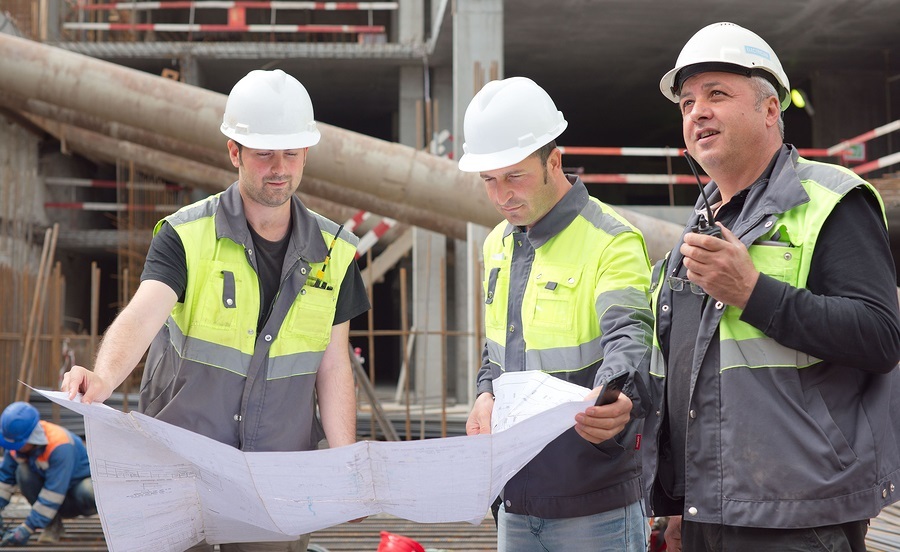The state of Minnesota has a lengthy series of construction requirements for all commercial and residential contractors that want to work in the state, but the requirements are not complicated. Each general area of construction from remodeling to brand new construction requires a license, and the requirements for those licenses are spelled out completely on the Minnesota Department of Labor and Industry website. Contractors looking to work in Minnesota should refer to the website to make sure that their licensing is in place.

Construction is on the rise in Minnesota.
Registering A Contractor
A contractor that already holds a valid business license is allowed to do business in the state of Minnesota for commercial and residential clients. If a contractor does not have a license, then that contractor must register with the Minnesota Department of Labor and Industry. The good news is that the registration process is easy, and the better news is that registration is free.
The registration process does require comprehensive information on the type of work the contractor will be doing, and the contractor needs to be licensed in their respective field before they can begin work. The Department of Labor and Industry makes it clear that any contractor working without being registered, or any general contractor that hires an unregistered subcontractor, will be subject to extensive fines.
Builders, Roofers, Remodelers
According to Contractors-License.org, Minnesota has one license that covers builders, roofers, and remodeling contractors. Companies that expect to file gross revenue receipts of over $15,000 for the calendar year need to be licensed. Companies that do not expect to bring in $15,000 in revenue must file an affidavit with the state.
Contractors that work in one field, such as masonry, do not need to get a license. But contractors who work in two or more of the following fields need to be licensed:
- Excavation
- Masonry
- Carpentry
- Interior finishing
- Exterior finishing
- Drywall
- Roofing
The one exception to this rule is roofing contractors. All roofing contractors must be licensed, and their employees must all pass a residential roofing exam to be allowed to work in Minnesota.
Asbestos Or Lead Abatement
Asbestos or lead abatement contractors must register with the Minnesota Department of Health before getting their business licenses. Asbestos and lead abatement supervisors must have separate certification from the state, and all abatement workers must be certified in their field before being allowed to work. Before applying to be certified, abatement workers must pass a safety course set up by the state.
Electricians
The state of Minnesota has four different types of electrician licenses. They are Class A, Class B, alarm systems, and communication systems. While a contractor does not need to have experience to qualify for a license, they must present a $5,000 insurance bond to apply for a license. Contractors must also show proof of the proper level of liability insurance coverage before a license will be granted. While experience is not required, you must be a master electrician, or your company must hire a master electrician, to qualify for a license.

Minnesota makes its contracting requirements easy so you can get to work sooner.
Plumbers
Plumbers that work in cities with a population of under 5,000 do not need a license to work in the state of Minnesota. Plumbers that work in larger cities must get one of four licenses: master plumber, journeyman plumber, water conditioning installer, and water conditioning contractor. To qualify to take the master plumber test, you must have at least five years of verifiable experience as a journeyman. To become a journeyman, you need four years of verifiable experience.
The state of Minnesota’s contractor licensing laws are not nearly as strict as some other states. You can learn more about contractor requirements in Minnesota if you start a course with PDH Contractors today. At PDHContractors.com, you will get all of the information you need to run a legal and successful contracting business.
